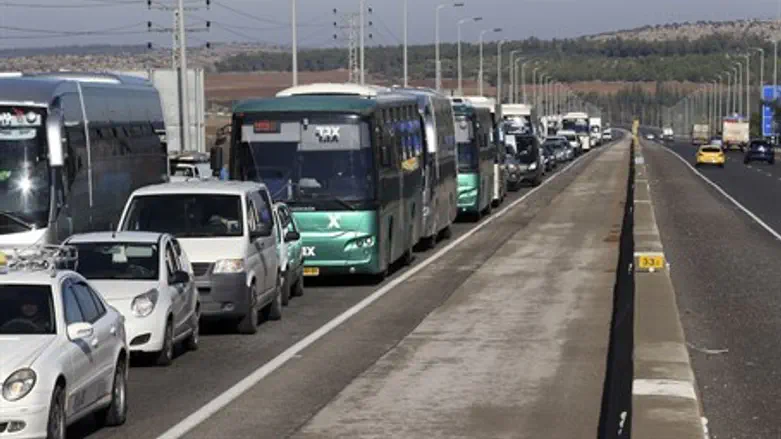
For more than two months, employees of the Ministry of Transportation responsible for administering driving exams have been on strike, protesting plans to privatize their positions.
That’s left tens of thousands of Israelis unable to receive their driver’s licenses. As the strike has dragged on, however, driving instructors have also felt the pinch, with students pushing off lessons until the strike is resolved.
Now, nine weeks after the strike began, hundreds of driving instructors are fighting back against the strike with a unique form of protest.
On Thursday, instructors from across the country converged on Highway 1, the main traffic artery between Jerusalem and Tel Aviv to block the road in protest of the ongoing strike and the government’s failure to take decisive action to end it.
But while blocking roads in protest is hardly new, the instructors decided to add a spin on the old idea, one in keeping with their profession.
Hundreds of instructors drove from Latrun to Jerusalem – but at a snail’s pace, effectively blocking all traffic and creating huge jams.
One of the protesting instructors, Fabian Orlansky from Ariel, explained the reasoning behind the demonstration.
“The strike has already been going on for nine weeks, and that’s a long time. Students who were already supposed to apply for their tests have stopped taking classes, and rightly so. If I were in their place I would stop until I knew what was happening and that’s precisely what I do; the students and teachers work hard for their money.”
The driving testers’ union issued a statement in response to Thursday’s protest.
“The idea to privatize [our positions] is terrible and unrealistic,” the statement read. “Any change they want to make can be done in the existing framework, there’s no reason to outsource it. Today we’re doing the work and the amount of tests that they are requesting from contracted workers to do in the future, and with good service, too. Without any economic considerations about what the contractors will do; we think that the state cannot give up governmental authority and hand this over to private hands.”
